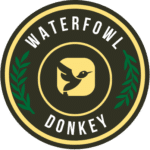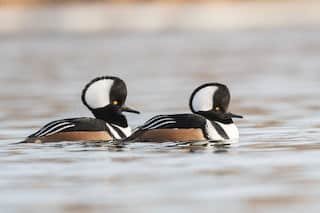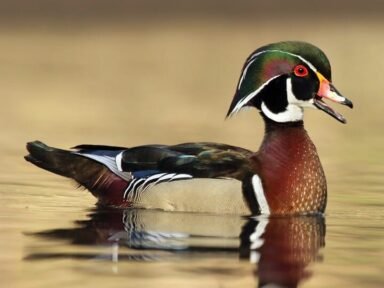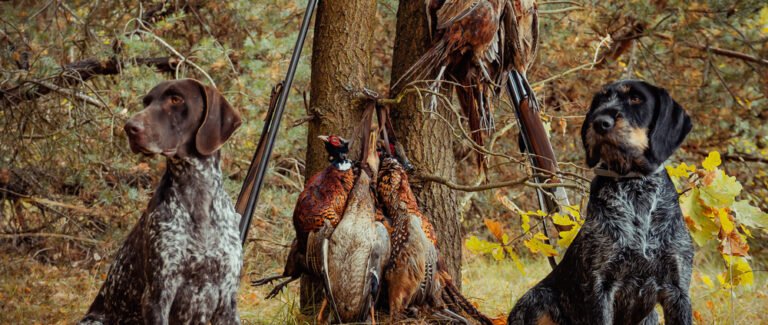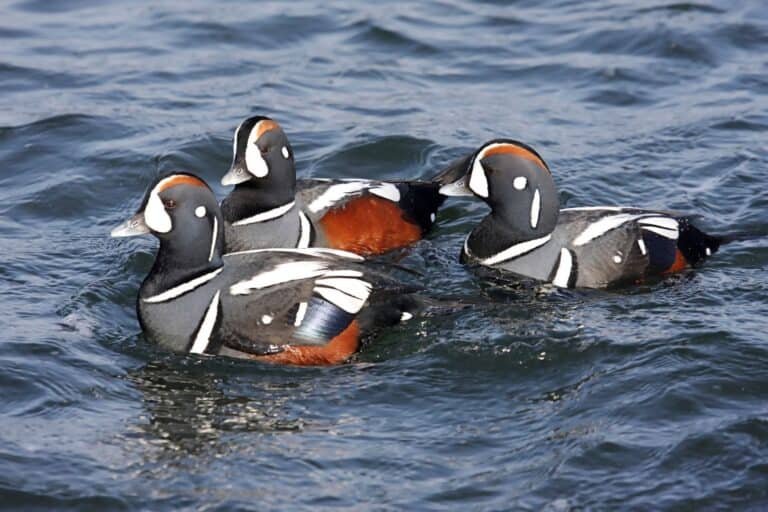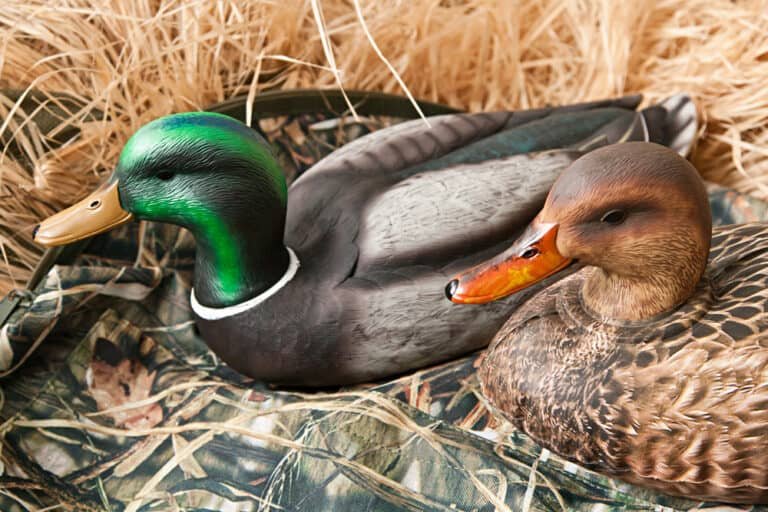Conservation – Why It Should Be Important to You Now
Conservation, in its essence, is the deliberate and responsible management of natural resources, aiming to protect and preserve ecosystems for future generations. It recognizes the interconnectedness of all living organisms and emphasizes the need to maintain a delicate balance within the environment. Conservation ensures that biodiversity thrives, ongoing ecological processes continue uninterrupted, and the integrity of habitats remains intact.
The importance of conservation cannot be overstated. Ecosystems provide numerous services essential for human life, such as clean air, fresh water, climate regulation, and food production.
Moreover, they offer aesthetic value and recreational opportunities contribute to our well-being. Within the broad framework of conservation efforts lies a group often misunderstood: hunters.
While popular narratives may cast them in a negative light due to misconceptions or limited understanding, hunters play a significant role in conservation endeavors worldwide. By actively engaging with wildlife populations through hunting, these individuals contribute invaluable expertise and resources to preserve ecosystems.
Definition of Conservation and Its Importance in Preserving Ecosystems
Conservation encompasses various practices to maintain ecological balance while ensuring the sustainable utilization of natural resources. It involves protecting vulnerable species from extinction and safeguarding their habitats from degradation caused by human activities.
By conserving ecosystems as functional units with thriving flora and fauna populations, we can secure stable ecosystems capable of supporting all life forms. Preserving ecosystems is crucial for several reasons.
Firstly, it safeguards biodiversity by preventing the loss or decline of species that may have vital roles within their respective habitats. Each organism uniquely maintains ecosystem stability through predation, pollination, seed dispersal, or nutrient cycling interactions.
Secondly, conservation efforts help sustain critical ecosystem services upon which human societies depend. For instance, forests mitigate climate change by sequestering carbon dioxide while providing timber resources for construction industries.
Wetlands act as natural water filters, purifying water and preventing floods. By ensuring the preservation of these services, conservation benefits both wildlife and people alike.
Brief Overview of the Role of Hunters in Conservation
Contrary to popular misconceptions, hunters have historically played a vital role in conservation initiatives. Throughout human history, hunting was instrumental for survival, providing sustenance and essential materials for clothing and shelter.
As societies evolved, however, cultures began recognizing the need for ethical guidelines and sustainable practices to prevent overexploitation of wildlife resources. In the late 19th century, prominent figures like Theodore Roosevelt and Aldo Leopold laid the foundation for modern conservation ethics.
They championed the concept of responsible hunting to conserve natural resources for future generations. Their ideas eventually led to establishing of national parks and wildlife refuges worldwide.
Today, hunters continue to be actively involved in conservation efforts. By participating in regulated hunting activities under strict legal frameworks and guidelines, hunters contribute significant financial resources to fund habitat restoration projects, research initiatives, enforcement efforts against poaching or illegal trade activities, and education programs promoting responsible hunting practices.
The unique perspective gained through active engagement with wildlife populations makes hunters valuable partners in ensuring long-term ecosystem health and sustainability. This article will delve deeper into how hunters actively contribute to conservation through sustainable use practices while examining specific initiatives they lead or support.
We will explore the ecological impact of hunting on ecosystems and address common misconceptions associated with this topic. By doing so, we hope to provide a comprehensive understanding of hunters’ crucial role in preserving our natural heritage.
Early human civilizations and their reliance on hunting for survival:
Hunting played a fundamental role in sustaining communities in the early stages of human history. Our ancestors depended on procuring wild game as a vital source of food, clothing, and tools to ensure their survival. Hunting was not merely a recreational pursuit but an essential activity that allowed them to secure sustenance from nature’s abundant resources.
The emergence of conservation ethics in the late 19th century
The late 19th century marked a significant turning point in our understanding of conservation ethics. As industrialization and urbanization advanced, concerns about the depletion of natural resources and loss of wildlife habitats grew. During this time, influential figures like Theodore Roosevelt and Aldo Leopold emerged as pioneers advocating for preserving wilderness areas and responsible land stewardship.
Influence of figures like Theodore Roosevelt and Aldo Leopold
Theodore Roosevelt, renowned for his passion for nature, was pivotal in shaping conservation policies during his presidency (1901-1909). He established numerous national parks, monuments, forests, game reserves, and bird sanctuaries across America. His efforts set forth the idea that wildlife should be protected for its intrinsic value and for future generations to enjoy.
Aldo Leopold’s influence on conservation thinking cannot be overstated. Known as the father of wildlife management, he advocated for an ecological approach to land use planning.
Leopold emphasized preserving entire ecosystems rather than focusing solely on individual species. His book “A Sand County Almanac” became a classic environmental text, inspiring generations to view nature as an interconnected web deserving of respect and protection.
Establishment of national parks and wildlife refuges
Building upon the conservation fervor of the late 19th century, establishing national parks and wildlife refuges became a cornerstone in preserving natural areas. National parks, such as Yellowstone (1872) and Yosemite (1890), were created to safeguard the unique landscapes, ecosystems, and biodiversity they contained. Similarly, wildlife refuges were designated areas specifically managed to protect and conserve wildlife habitats.
These spaces provided safe havens for animals to flourish undisturbed by human interference. With time, these protected areas grew in number and size, serving as vital sanctuaries where nature could thrive amidst encroaching development.
The Modern Hunter-Conservationist Paradigm
The modern hunter-conservationist paradigm represents a significant shift in how hunters perceive their role in wildlife conservation. This paradigm recognizes the importance of sustainable use, which involves striking a delicate balance between hunting and population management to prevent overexploitation. Hunters understand that responsible harvesting practices are essential to ensure the long-term viability of wildlife populations and the ecosystems they inhabit.
Understanding the Concept of Sustainable Use
Sustainable use refers to utilizing natural resources, including game animals, to allow for their continued existence while meeting human needs. Hunters have embraced this concept by recognizing that regulation and careful monitoring are necessary to prevent overhunting and ensure population health. Hunters are crucial in maintaining balanced ecosystems by adhering to scientifically determined harvest quotas and participating in species-specific management plans.
Balancing Hunting with Population Management to Prevent Overexploitation
Hunters understand that unchecked hunting can lead to detrimental effects on wildlife populations and their habitats. Therefore, they actively engage in population management initiatives to maintain healthy population levels.
This involves collaborating with wildlife agencies and conservation organizations to establish sustainable harvest quotas that consider reproductive rates, habitat availability, and overall population health. These efforts ensure that hunting remains within sustainable limits while allowing for natural growth and genetic diversity.
The Role of Hunters as Stewards of Wildlife Populations
Hunters embrace their responsibility as stewards of wildlife populations by actively participating in conservation efforts beyond mere hunting activities. They contribute invaluable data through citizen science initiatives, reporting sightings, or collecting biological samples for research purposes. Additionally, hunters help monitor animal behaviors, track migration patterns, and assess habitat quality – all vital information for effective wildlife management strategies.
Funding Conservation through Hunting Licenses and Fees
Hunting licenses and associated fees serve as a vital funding source for conservation efforts. Hunters willingly contribute to these financial mechanisms, recognizing that their financial support is essential for the sustainability of wildlife populations and their habitats. The revenue generated from hunting licenses enables conservation agencies to invest in habitat restoration, species-specific research initiatives, and enforcement efforts, ensuring the long-term protection of natural resources.
Contributions to Habitat Restoration, Research, and Enforcement Efforts
Hunters actively engage in various activities aimed at restoring and enhancing wildlife habitats. They contribute their time and resources to reforestation, wetland restoration, and invasive species control projects.
Additionally, hunters often collaborate with researchers by providing valuable insights into game animal behaviors and population dynamics. Furthermore, hunters assist law enforcement agencies by reporting illegal activities related to wildlife poaching or habitat destruction.
Economic Benefits for Local Communities Through Hunting Tourism
Hunting tourism plays a substantial role in supporting local economies by attracting visitors who seek hunting experiences. Hunters often travel to remote areas or regions with abundant wildlife populations, contributing to the growth of rural communities through expenditure on accommodations, supplies, transportation services, and local businesses. The revenue generated from hunting tourism contributes significantly to infrastructure development while promoting cultural exchange between hunters and locals.
Conservation Initiatives Led by Hunters
Wildlife management programs implemented by hunting organizations
Hunting organizations play a pivotal role in wildlife management programs that aim to conserve and sustain animal populations. These programs involve data collection on species population dynamics, habitat assessment, and the implementation of scientifically-based harvest quotas.
Hunting organizations work closely with government agencies, scientific experts, and local communities to develop comprehensive management plans that promote sustainable hunting practices. By actively participating in these initiatives, hunters directly contribute to preserving healthy ecosystems and the long-term viability of target species.
Promoting responsible hunting practices through education and training
Recognizing the importance of responsible hunting practices, hunting organizations strongly emphasize education and training. Hunter safety courses are offered to ensure that hunters possess the necessary knowledge of firearm safety, wildlife identification, navigation skills, and ethical considerations while pursuing their passion. These courses educate hunters about legal requirements related to licensing, bag limits, and reporting procedures.
Furthermore, they emphasize principles of fair chase and respect for nature—instilling a deep sense of stewardship among individuals engaging in this ancient tradition.
- Hunter safety courses cover essential topics such as firearm safety protocols, handling techniques, and shooting accuracy improvement strategies.
- Ethical guidelines for harvesting game animals: Hunters are encouraged to abide by strict ethical guidelines focusing on humane harvesting techniques to minimize suffering during the hunt. They are urged to only target animals within legal limits set by wildlife management authorities.
Restoration efforts for endangered or threatened species
Hunters actively contribute towards restoring populations of endangered or threatened species through reintroduction programs and habitat enhancement projects – both critical components of conservation initiatives. Reintroduction programs involve carefully selecting suitable habitats where endangered or threatened species can be reintroduced to establish self-sustaining populations.
For instance, hunting organizations have successfully reintroduced wild turkeys and elk in areas where they had become locally extinct. These initiatives require meticulous planning, monitoring, and management to ensure the survival and growth of these populations.
Habitat enhancement projects focus on improving the quality of existing habitats or creating new ones to support vulnerable species. This includes initiatives like wetland restoration to benefit waterfowl populations or reforestation efforts to provide suitable habitats for endangered species like the black-footed ferret.
Hunting organizations play a vital role in funding, implementing, and overseeing these habitat enhancement projects, ensuring long-term benefits for biodiversity conservation. By actively engaging in these restoration efforts, hunters demonstrate their commitment to preserving species diversity and maintaining ecological balance within ecosystems.
The Ecological Impact of Hunting on Ecosystems
Balancing Predator-Prey Relationships
Hunting is vital in maintaining a delicate balance within ecosystems by regulating predator-prey relationships. By selectively harvesting certain prey species, hunters help prevent herbivores’ overpopulation, which can lead to ecological imbalances such as overgrazing and habitat degradation.
For instance, in areas where ungulate populations are left unchecked, they can consume excessive vegetation and damage the natural habitat for other species. By managing predator-prey relationships through hunting, hunters contribute to maintaining healthy and sustainable ecosystems.
Regulating Ungulate Populations to Prevent Overgrazing
Hunters also contribute significantly to preventing overgrazing by regulating ungulate populations. An overabundance of ungulates can lead to resource depletion and negatively impact plant biodiversity.
Through hunting seasons and bag limits based on scientific research, hunters aid in reducing ungulate populations within sustainable levels that allow vegetation to regenerate naturally. This proactive approach prevents the depletion of food sources for wildlife dependent on specific plants while ensuring a harmonious balance between herbivores and their habitat.
Reducing the Risk of Disease Transmission Within Animal Populations
Another ecological benefit of responsible hunting practices is the reduction of disease transmission within animal populations. Overcrowding due to unchecked population growth can increase animal stress levels, making them more susceptible to diseases.
By managing wildlife populations through regulated hunting programs, hunters assist in preventing disease outbreaks that could potentially decimate species or spread into other regions. Furthermore, hunters indirectly enhance overall population health by targeting older animals that may carry higher disease loads.
Influence on Biodiversity: Preventing Dominance by Certain Species
The influence of hunting extends beyond predator-prey dynamics; it also plays a crucial role in preserving overall biodiversity. Hunting can help prevent the dominance of certain species, which could otherwise have a detrimental effect on ecosystem balance.
By selectively targeting and managing populations of dominant species, hunters prevent ecological monopolies and enable a more diverse range of flora and fauna to thrive. This active conservation approach ensures the continued coexistence of multiple species within their respective niches, contributing to ecosystems’ overall health and resilience.
Conclusion
Hunters have long been integral to conservation efforts, significantly maintaining the delicate equilibrium within ecosystems. Through their contributions in balancing predator-prey relationships, regulating ungulate populations to prevent overgrazing, reducing disease transmission risks, and preventing dominance by certain species, hunters actively preserve biodiversity and promote sustainable ecosystems.
While debates may continue regarding hunting practices, it is important to recognize that responsible hunting is vital in ensuring long-term ecological stability. By embracing effective conservation measures and collaborating with other stakeholders, hunters can continue their legacy as stewards of nature while safeguarding our natural heritage for future generations.

